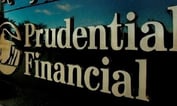Legendary fund manager Robert Rodriguez, who forecast the global financial crisis, sees money managers and advisors in peril. They will be victims of their own heedlessness, he says.
The day of reckoning will come within three years in a financial crisis at least as big and pernicious as The Great Recession, he told ThinkAdvisor in a recent, exclusive interview. The country is treading a tenuous path toward another disaster of massive proportions, according to Rodriguez.
Today, the investor’s stance is ever-cautious, as evidenced by his personal portfolio, which he discusses in the interview, as well as his five-prong formula for investing success and the essential research he relies upon.
Rodriguez continues to identify the horsefly in the ointment as the federal government’s ineffective monetary and fiscal policies, as he calls them, and the failure to attack critical structural issues.
For years now, he has warned of a looming crisis, even as the financial services industry has ignored, he argues, the enormously changed landscape since the global meltdown.
The outspoken CEO-managing partner of Los Angeles-based First Pacific Advisors (FPA), which has $33 billion in assets under management, is the firm’s strategic advisor. In 2011 he turned over day-to-day management of key funds to his partners, as planned, following a year-long sabbatical.
The FPA Capital Fund boasts a compounded rate of return from July 1984 through Sept. 30, 2014, of 14.65%. The FPA New Income Fund has not had a negative year in three decades.
Seeing all too clearly the handwriting on the wall, Rodriguez, in 2007, moved FPA to a cash level nearly twelve times that of the industry.
This month, he spoke with ThinkAdvisor from his Lake Tahoe, Nevada, base during a violent wind storm and power outage there. It was on Oct. 15, the day the Dow plunged 460 points before rallying somewhat to end down 173.
“We’re having a little bit of a blow in the marketplace and a little bit of blow in Lake Tahoe,” he quipped. Here are highlights of the conversation:
THINKADVISOR: What’s your take on the market and the economy?
ROBERT RODRIGUEZ: We’re living on borrowed time. When this market breaks, you’re going to see so many money managers and others washed out to sea who will never see land again. It will happen between now and 2018.
Why?
The federal government isn’t controlling their spending. For the past two years, 60% of investment returns have been a function of P/E expansion. Earnings growth is being driven by a fair amount of financial engineering on the part of the Federal Reserve and corporations. I’m sitting here for two years saying, “Hel-lo! Doesn’t anybody get this?”
You must be frustrated.
For some time, I’ve hated the financial market. When the history of this period is written, the Fed presidents and those who have deployed quantitative easing will be glorified as great snake-oil marketers.
How would you characterize the economy right now?
Is this a vibrant economy? Absolutely not. I don’t know what people are smoking! No amount of monetary stimulus that’s driving up the illusion of stock prices is going to get back to the basic elements of improving fundamental elements in the economy. Debt and entitlements are growing at more than twice the rate of nominal GDP growth. It’s an absurdity! Doesn’t the financial services industry realize what’s happening?
I get on a tangent; but I sit here in utter amazement that all this goes on, and the industry proceeds as usual. Hel-lo! The world has changed! It changed in 2008. We’re in a different and fundamentally more volatile environment than any we’ve seen prior to 2008.
What’s your advice to advisors?
I don’t live in the here and now; I live five and 10 years in the future and always have. Lots of things will be coming together in the next two years. Your readership [could] be deployed in risky assets: Do you believe the assets you’re invested in compensate you with sufficient margin of safety for the volatility of what’s likely to transpire in the next two to three years? If the answer is yes, be happy. If the answer is no, then maybe you need more cash or liquidity in your asset-allocation structure.
What’s in your own portfolio?
I sold my last direct ownership stock in July of this year. So, for the first time in 43 years, I don’t own any equities directly. I own stocks through our mutual funds.
You got out of individual equities entirely?
Yes. The underlying fundamentals of equities are deteriorating. So I think exposure should be low.
What about bonds?
Bond exposure should be maintained only in the highest quality areas. The big spread expansion and deterioration in credit quality is something that you’ll see more frequently in the next couple of years. The high-yield market is going to get hammered.
What do you own personally in bonds?
One area of that market that I went into in August of last year was the five-year Treasury in the 175-180 [basis points] range. I figured that was probably going to be a good yield for a period of time. Five years meant that my bonds would mature ahead of time in the event that the [government’s] fiscal ineptitude continued in conjunction with its unsound monetary policy.
What strategy do you live by to make money in the market?
Being successful in longer-term investing requires five elements. The first is discipline: You have to have discipline in how you analyze your securities. The second is patience to wait for those securities to present themselves in an attractive way. Next is the most difficult: courage. You have to have the courage to execute when all else says don’t. Then you need patience again — to allow those investments to work out over a period of time.
And finally?
You need discipline again to sell because you’ve been correct or to sell because your analysis has been incorrect. So you have to have double doses of discipline, double doses of patience; and then you mix in courage. With that concoction, the odds are you’ll be a successful investor longer term.
What research do you rely on?
I believe the most important chart to look at is the dollar index, DXY Index GP. When monetary policy fails with QE, the only thing left in the bag of arrows will be currency. That is, how do you cheapen your currency to improve the competitiveness of your product to sell it? We will see aggressive currency realignment and at some point, if it gets out of control, currency war. When could that happen?
We’ll find out in approximately two or three years whether the Fed’s monetary policies have worked their magic. By that time the U.S. will have been on QE of some type for going on nine years.
You’ve been critical about the president’s Keynesian economic policy for years now.
In June 2009, I said that the one-time home credits and cash-for clunkers programs would only give a temporary blip to economic growth and would dissipate as if you’d never seen them. Now we’ve wasted five years and nearly $14 trillion in economic stimulus. Instead, we should have been providing tax-incentive programs for private corporations to rebuild and retrain our workforce, and a host of other things.








 October 27, 2014 at 06:50 AM
October 27, 2014 at 06:50 AM










